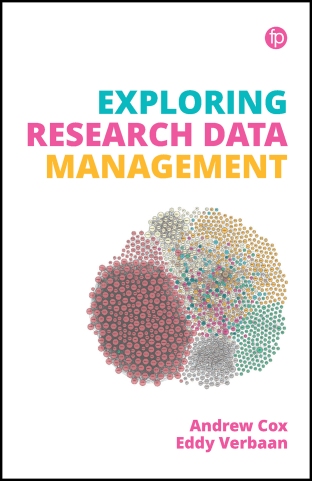The Growing Importance of Data in Academic Libraries
To celebrate Love Data Week, we are pleased to share this guest post by Andrew Cox, co-author of the Facet Publishing, UK book Exploring Research Data Management, which was originally posted to the Facet Publishing blog.
In a globalizing world the future is complicated. It is not simply a matter of new trends impacting library work in clearly defined ways. Rather change seems to be impacting our work in complex ways. In a recent report on the future of academic libraries (Pinfield, Cox and Rutter, 2017) we sought to address this complexity by proposing that we think in terms of nexuses of change. Two major ones we identified were:
- “The datafication of research” -combining trends such as open access, open science, text and data mining, artificial intelligence and machine learning, the internet of things, digital humanities and academic social networking services, and
- “Connected learning” -incorporating changing pedagogies, learning analytics, students as customers, social media, mobile computing, maker spaces and blurring of space uses.
A story that seems to be threaded through these changes is the growing importance of data.
Research data management
Thus one aspect of change in research practice is the way that the valued outputs of research are increasingly not confined to written outputs, but also seen to lie in the underlying research data. If made discoverable and useable these data can be the foundation for new research. Research Data Management is the emergent set of professional practices that supports this emphasis. Librarians have had a big part in how this story has unfolded.
Text Data Mining
Another data related change in research is the way that texts in the library are increasingly to be seen as data for Text and Data Mining (TDM). When there are literally hundreds of thousands of research papers on a topic, a manually conducted “comprehensive literature review” becomes an impossibility. Rather we will need the help of text mining algorithms that seek out patterns in the corpus of texts. It is libraries that are seeking to create the legal and technical infrastructure in which TDM can be carried out.
Learner Analytics
Learning is also undergoing a data revolution. Usage behaviour as library or learning analytics is another key area of development. If we can connect the data we have about user visits to the library, book issues and resource downloads, activities in the virtual learning environment and in the classroom, we can produce a better understanding of learner behaviour to help customise services. Librarians could be at the forefront of mining this data to improve services.
Data: structured or unstructured?
Granted, this storm of interest in “data”, may disguise different usages of the term. Research data could be qualitative data, though they are perhaps most valuable and vulnerable when derived from data intensive science. TDM is concerned with text as unstructured data. Library and Learning analytics are based primarily on structured, log file data.
The ethical issues
At the same time our sensitivity to the ethical issues around data is rising. How can users be given appropriate control over their own data? What restrictions need to be placed on commercial companies’ use of data about our online behaviour? Can libraries themselves retain users’ trust while exploiting the benefits of learning data analysis for service improvement? There are also massive challenges around data preservation in all these contexts. The professional knowledge of librarians and archivists need to be translated to meet the challenges of data curation. Data literacy, as an aspect of information literacy, will also need to be part of librarians’ training offer.
All these trends suggest that our skills in managing, interpreting and visualising, and curating data, in ethical and legally safe ways, will be at the heart of our profession’s work in the next decades. One of our future stories is as a data profession.
Andrew Cox is a senior lecturer at the Information School, University of Sheffield and led the RDMRose Project. His research interests include virtual community, social media and library responses to technology. He coordinates Sheffield’s MSc in Digital Library Management.
You can follow Andrew on Twitter @iSchoolAndrew
Exploring Research Data Management is an accessible introduction to RDM with engaging tasks for the reader to follow and build their knowledge. It will be useful reading for all students studying librarianship and information management, and librarians who are interested in learning more about RDM and developing Research Data Services in their own institution.
References
Pinfield, S., Cox, A.M., Rutter, S. (2017). Mapping the future of academic libraries: A report for SCONUL. https://sconul.ac.uk/publication/mapping-the-future-of-academic-libraries


